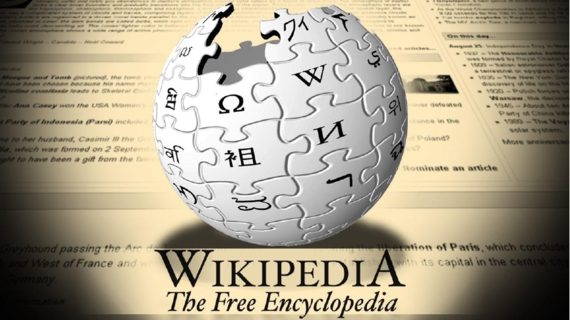Did you know that 40% of internet users, and as many as 70% of younger users have personally experienced harassment online? And more than half of people who reported experiencing harassment also reported decreasing their participation in the Wikimedia community. And, Wikimedia's the real deal - we need as many voices at the table as possible.
Online harassment's a big problem that needs to be addressed. To ensure Wikipedia's vitality, people of good will need to work together to prevent trolling, harassment, and cyber-bullying from interfering with the common good.
To that end, I'm supporting the work of the Wikimedia Foundation towards the prevention of harassment by donating $500,000, in part from the Craig Newmark Foundation, to advocate for a healthier and more inclusive Wikimedia community.
The money donated will support the launch of a community health initiative to address harassment and toxic behavior on Wikipedia through the development of tools for volunteer editors and staff to reduce harassment and block harassers.
Volunteer editors on Wikipedia are often the first line of response for finding and addressing harassment. "Trolling," "doxxing," and other harmful behaviors are burdens to Wikipedia's contributors, impeding their ability to do the writing and editing that makes Wikipedia so comprehensive.
The goal is to fund the initial phases of a program to strengthen existing tools and develop additional tools to more quickly identify potentially harassing behavior, and help volunteer admins evaluate harassment reports and respond quickly and effectively. These improvements will be made in close collaboration with the Wikimedia community to evaluate, test, and give feedback on the tools as they're developed.
This initiative addresses the major forms of harassment reported on the Wikimedia Foundation's
, which covers a wide range of different behaviors, including:
...and really, anything that targets individuals for unfair and harmful attention.
From research and community feedback, 4 areas have been identified where new tools could be beneficial in addressing and responding to harassment:
- Detection and prevention - making it easier and faster for editors to identify and flag harassing behavior.
- Reporting - providing victims and respondents of harassment improved ways to report instances that offer a clearer, more streamlined approach.
- Evaluating - supporting tools that help volunteers better evaluate harassing behavior and inform the best way to respond.
- Blocking - making it more difficult for someone who is blocked from the site to return.
This is really serious, and you can read more on the initiative here. How have you contributed to Wikipedia? And, will you be more inclined now that there will be more measures to prevent and address online harassment?
Support HuffPost
Our 2024 Coverage Needs You
Your Loyalty Means The World To Us
At HuffPost, we believe that everyone needs high-quality journalism, but we understand that not everyone can afford to pay for expensive news subscriptions. That is why we are committed to providing deeply reported, carefully fact-checked news that is freely accessible to everyone.
Whether you come to HuffPost for updates on the 2024 presidential race, hard-hitting investigations into critical issues facing our country today, or trending stories that make you laugh, we appreciate you. The truth is, news costs money to produce, and we are proud that we have never put our stories behind an expensive paywall.
Would you join us to help keep our stories free for all? Your contribution of as little as $2 will go a long way.
Can't afford to donate? Support HuffPost by creating a free account and log in while you read.
As Americans head to the polls in 2024, the very future of our country is at stake. At HuffPost, we believe that a free press is critical to creating well-informed voters. That's why our journalism is free for everyone, even though other newsrooms retreat behind expensive paywalls.
Our journalists will continue to cover the twists and turns during this historic presidential election. With your help, we'll bring you hard-hitting investigations, well-researched analysis and timely takes you can't find elsewhere. Reporting in this current political climate is a responsibility we do not take lightly, and we thank you for your support.
Contribute as little as $2 to keep our news free for all.
Can't afford to donate? Support HuffPost by creating a free account and log in while you read.
Dear HuffPost Reader
Thank you for your past contribution to HuffPost. We are sincerely grateful for readers like you who help us ensure that we can keep our journalism free for everyone.
The stakes are high this year, and our 2024 coverage could use continued support. Would you consider becoming a regular HuffPost contributor?
Dear HuffPost Reader
Thank you for your past contribution to HuffPost. We are sincerely grateful for readers like you who help us ensure that we can keep our journalism free for everyone.
The stakes are high this year, and our 2024 coverage could use continued support. If circumstances have changed since you last contributed, we hope you’ll consider contributing to HuffPost once more.
Already contributed? Log in to hide these messages.

